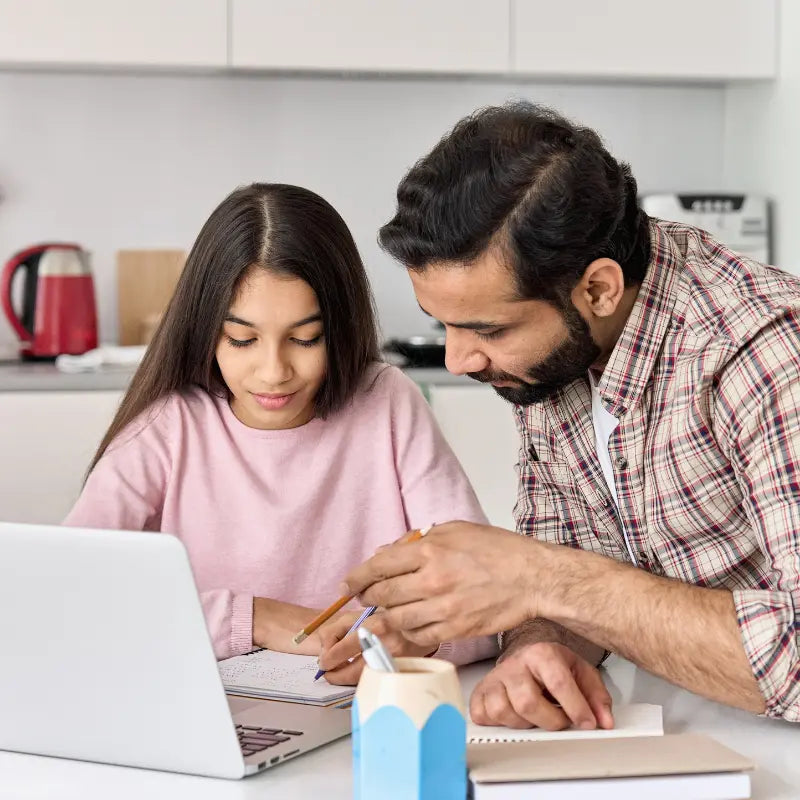Using tech products, especially for children, is complicated. Every purchase or download comes with a Pandora's Box of questions: Is it going to keep my child’s information safe? Will strangers be able to contact my child? Will this protect them from cyberbullying? Will I have to watch them record, and re-record, a viral dance video 75 times?
It seems that every child’s product has an online aspect or accompanying app. As creators of tech products, as well as parents who purchase things for our own children, we’re passing along our smart buying tips when it comes to tech and our kids!
Know Your Child’s Rights
When researching tech products, you’ll sometimes see the terms COPPA Compliant or COPPA Certified. So what’s the difference? COPPA, or the Children’s Online Privacy Protection Act, imposes requirements on websites and online services directed at children under 13 to protect your child’s personal information and to get verifiable parental consent before your child can use their service or product.
To be COPPA Compliant means that the company read through the Federal Trade Commission’s (FTC) rules and regulations and deemed themselves compliant, without any outside auditing or confirmation from the FTC.
To be COPPA Certified means that the company worked directly with an FTC-approved COPPA Safe Harbor Program to become fully COPPA compliant and certified. To become certified, the company goes through an extensive audit of all their privacy practices, how they collect and protect information from your child, technical assessments, vulnerability testing, how their devices work, and much more. Once they’ve been deemed as COPPA Certified, you can rest easy knowing your child’s information is safe. We've worked with an FTC-approved Safe Harbor program and our kids smartwatch phones are fully COPPA certified!
Security Measures To Look For
There are tons of ways companies can make their tech products safe for kids. One way is to make sure that everything is designed in-house and that they aren’t sharing your child’s information with third party providers.
For example, if your child’s tech product has a corresponding app, find out who designed the app by checking their Privacy Policy or Terms of Use. If the company designs their own products and apps in-house (like us), great! If the company is using a generic one-size-fits-all app that was designed by a third party, be aware of the risks--apps like these are designed with turn-key security, making them, and therefore your child’s private info, easy to breach.
Find out if the company is disguising your child’s information between data transmissions. End-to-end encryption is a great method for protecting your child’s data. Encryption works by scrambling the information before the transmission begins, making it unreadable without the key, which only the end user has to decrypt and read the information. This is a great way to make sure that your child’s private information is staying the way it should--private.
Read the Privacy Policy
We know, Privacy Policies are boring, but companies are legally obligated to tell you the most important information when it comes to your child and the information they can access. The top things to look for are:
- Who has access to your child’s information? You want the least amount of people seeing the information as possible. If they are working with third parties who have access to your child’s information, who are they and how are they using it?
- What information are they collecting from your child? The company should only be collecting the information absolutely necessary to make your product work--nothing more.
- Are they renting, selling, or sharing your child’s information with any third parties? This is a major red flag. Companies should never be selling or renting your child’s information to any outside companies or advertisers.
- Are they advertising directly to your child? Another no-no. Make sure that your child is never being sent ads directly. These include buying other products, in-app purchases, upselling, and everything in-between.
Check for Parental Consent
Did you know that under COPPA, if your child is under 13 years of age, companies are required to get parental consent prior to collecting any of your child’s personal information? Personal information includes anything that identifies your little one, including their name, phone number, or email address. If your child is using an app, website, or tech product, make sure that you are giving parental consent for that company to collect information from your child with details on how, what, and why they are using it. If you haven’t given consent, you can contact the company directly to delete your child’s information under COPPA.
We’re always looking for ways to help not only our customers, but families around the world understand technology (especially when it comes to modern parenting). Have any questions or suggestions for future articles? We’d love to hear from you by DMing us @myticktalk.



Share:
Our Promise To Protect Children's Privacy
How To Keep Your TickTalk 4 Safe For Summer